News from Maison de la Gare
Portrait of Hope for Talibé Children Living on the Street
Tweeter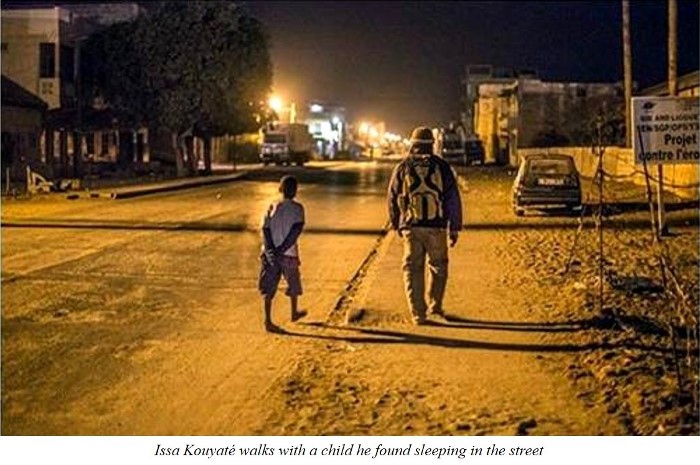
Ndèye Diodio Calloga describes four years of progress in finding and safely reintegrating boys found living on the streets
The four years of our grant from the European Union made possible a substantial improvement in the
living 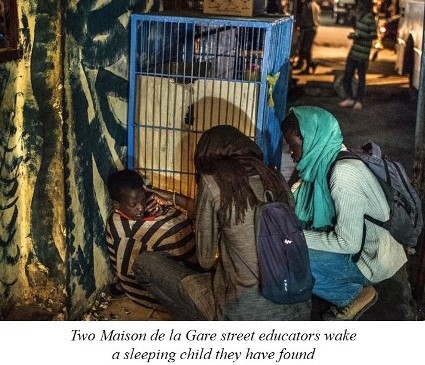 conditions of the begging street children of Saint Louis, through our educational, healthcare,
art, sports, and other programs. Our
previous report celebrated this progress.
conditions of the begging street children of Saint Louis, through our educational, healthcare,
art, sports, and other programs. Our
previous report celebrated this progress.
A visit to Maison de la Gare’s center can be inspiring … seeing children playing like normal children, washing
their clothes and brushing their teeth, and learning in their classrooms. However, one element of
our work is consistently painful to accept and difficult to understand … finding boys sleeping on the
streets at night alone or with one or two others. The European Union grant made it possible for us
to greatly expand our efforts to find and take care of these boys, with a team of eight to ten making
night rounds on the streets several times a week.
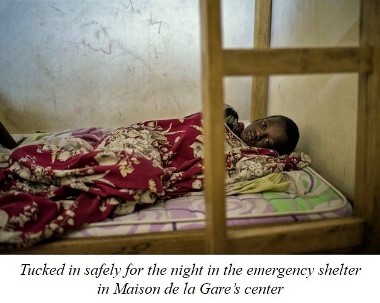
The results were more than alarming! During the four years, 984 boys were taken in from the streets
including 473 minors returned to their daaras, 437 returned to their families, 55 referred to other
centers and 19 who ran away from our emergency shelter.
While almost a quarter of these children were younger than 10 and a similar proportion older than 13,
over half were between 10 and 13 years of age. This can probably be explained by the fact that, at
this age, children can adopt a rebellious attitude. This is also the age when they begin to assert
their personalities and values. They need to be listened to and understood and, if this need is not
satisfied, it often leads to the talibé children running away from their daaras.
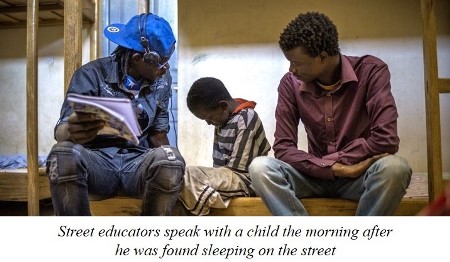
One of the unexpected challenges is the care of children who are addicted to illicit substances. We
have increasingly realized the extent of the risks that street children run because they are often
exploited and used by traffickers for the sale of their goods and this exposes them to use. Maison
de la Gare is thus increasingly seeing delinquent children referred by the police, the courts or
quite frequently by families. These children often have great difficulty in their teenage years
and, without assistance and guidance, they can embark on a dangerous path and be lost forever.
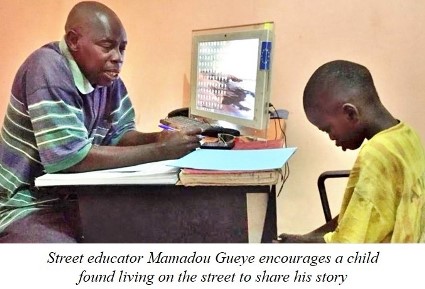
When children are brought into our emergency shelter by the night rounds team, they are registered
by the night staff and bedded down comfortably. In the morning, our social workers interview the
children and open files for them. The children are always afraid, and it takes a great deal of
wisdom and compassion to obtain their true stories. Each case is different, and often involves
investigation with their marabouts and contact with their families. We work with the local office
of the Ministry of Justice responsible for street children (“AEMO”) and, when appropriate, the
children’s court. In many instances we are authorized to return the child concerned to their daara,
or to their family which is usually in a distant corner of Senegal or, at times, in a
neighboring country.
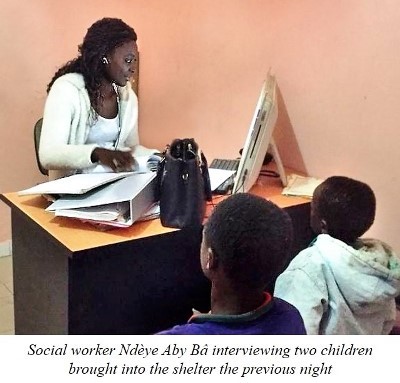
In past years, we almost never made a night round without finding several children asleep in
hidden corners. Recently, however, the night-rounds team occasionally finds no children at all
in the places where they usually sleep. This could well reflect an improvement in the children’s
living conditions in their daaras.
Ndaraw Diop, our leader of this activity taking charge of
children living in the streets, identifies this with the impact of marabouts repeatedly having
to deal with returned talibé children, often being brought before the court. Ndaraw quotes an
expression from traditional African wisdom: “Shame kills more surely than the
iron of a lance”.
With the end of the European Union grant in 2019, we are trying hard to sustain this critical
activity. We are deeply grateful for your support, which is making this possible.

